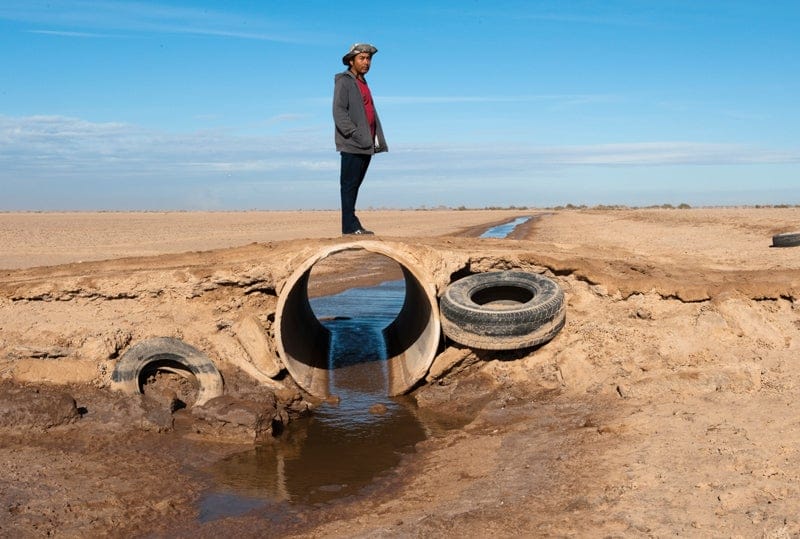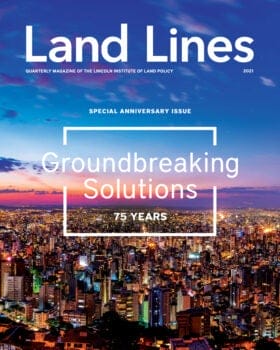Land Lines January 2021

The Life of an Idea: The Origins and Impact of the Lincoln Institute of Land Policy
John C. Lincoln established the Lincoln Foundation in 1946, beginning a tradition of education and research on land use and ownership that continues in the form of the Lincoln Institute of Land Policy. Senior Fellow Anthony Flint delves into the history of the organization, the principles of fairness that underpin its work, and the unique importance of land in economies, government, and society at large.

A Legacy of Innovation: How Leaders in Cleveland Reimagined and Rebuilt Their City After Decades of Decline
As the city where ambitious inventor John C. Lincoln got his start, Cleveland plays a pivotal role in the history of the Lincoln Institute. By taking steps such as reembracing its natural assets and experimenting with housing and transit models, it also offers a compelling case for how postindustrial U.S. cities can leverage land policy to create a more equitable, sustainable, and prosperous future.

Making a Good Tax Better: From Assessment to Collection, Three Places That Built Stronger Property Tax Systems
What does the property tax look like when it works well, and how can municipalities improve the way they assess properties, collect taxes, and communicate about this essential financial instrument? The experiences of three places that have successfully improved their property tax systems—Boston, Massachusetts; Tallinn, Estonia; and Kampala, Uganda—sheds light on these questions.

Building Value: In Brazil, Land Value Capture Supports the Needs of the Community
Land value capture, also known as land value return, is a policy approach used around the world that allows communities to recover and reinvest land value increases resulting from government actions and public investment. Its implementation has been especially effective in São Paulo, Brazil, where the use of CEPACs (Certificates of Additional Construction Potential) has raised billions of dollars to support affordable housing, transit, and other public needs.

Cultivating Change: China Amends Land Regulations, Giving Farmers a Fairer Deal
After decades of rampant urbanization, China is implementing new land administration reforms to ensure more intentional and equitable growth. Steps such as compensating farmers more fairly and narrowing the purposes for which land may be developed are in line with Lincoln Institute policy recommendations and seem to indicate a pattern of more sustainable urbanization to come.

In Search of Solutions: Water & Tribes Initiative Encourages Collaborative Approach to Colorado River Management
Climate change and severe drought are leading to critical water shortages along the Colorado River, a resource that serves 41 million people in seven U.S. and two Mexican states and irrigates 4 million acres of farmland. The Water & Tribes Initiative is working to ensure that the 29 federally recognized tribes in the Colorado River Basin are key players in any conversation about the future.

This special double issue of Land Lines commemorates the 75th anniversary of the Lincoln Institute of Land Policy, chronicling the organization’s history and exploring how land can serve as a solution to social, economic, and environmental challenges around the globe. From rural villagers in China to tribal nations along the Colorado River, we take a closer look at the people and places finding answers in land.
